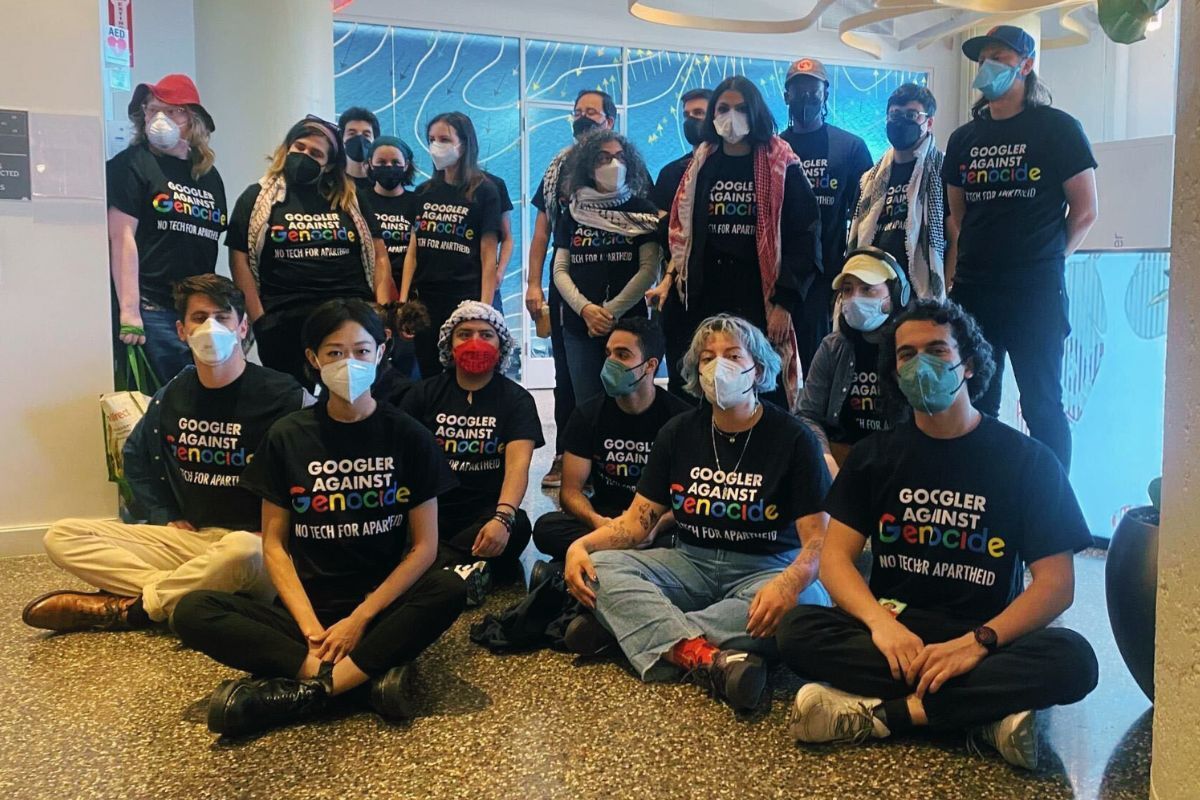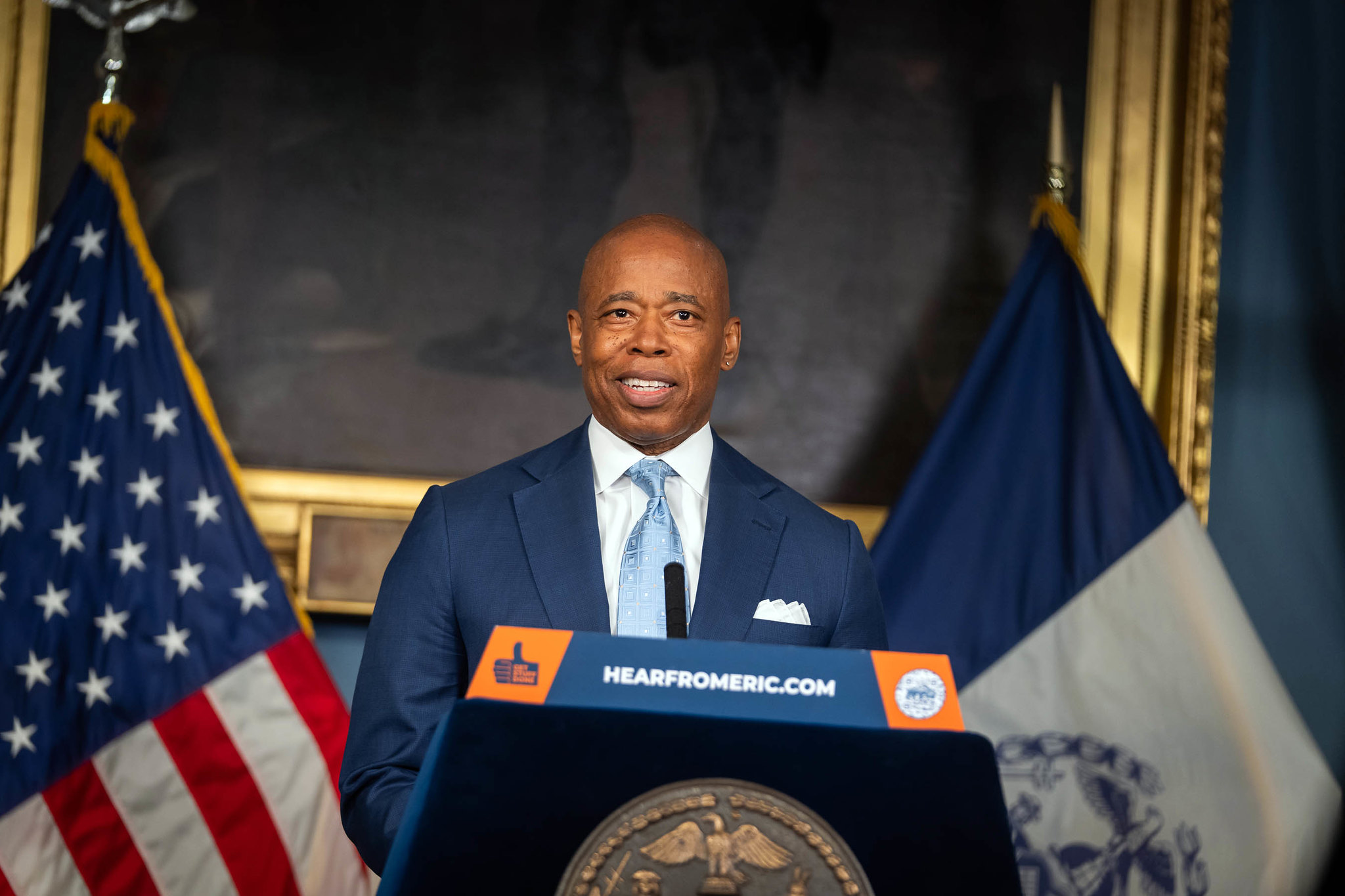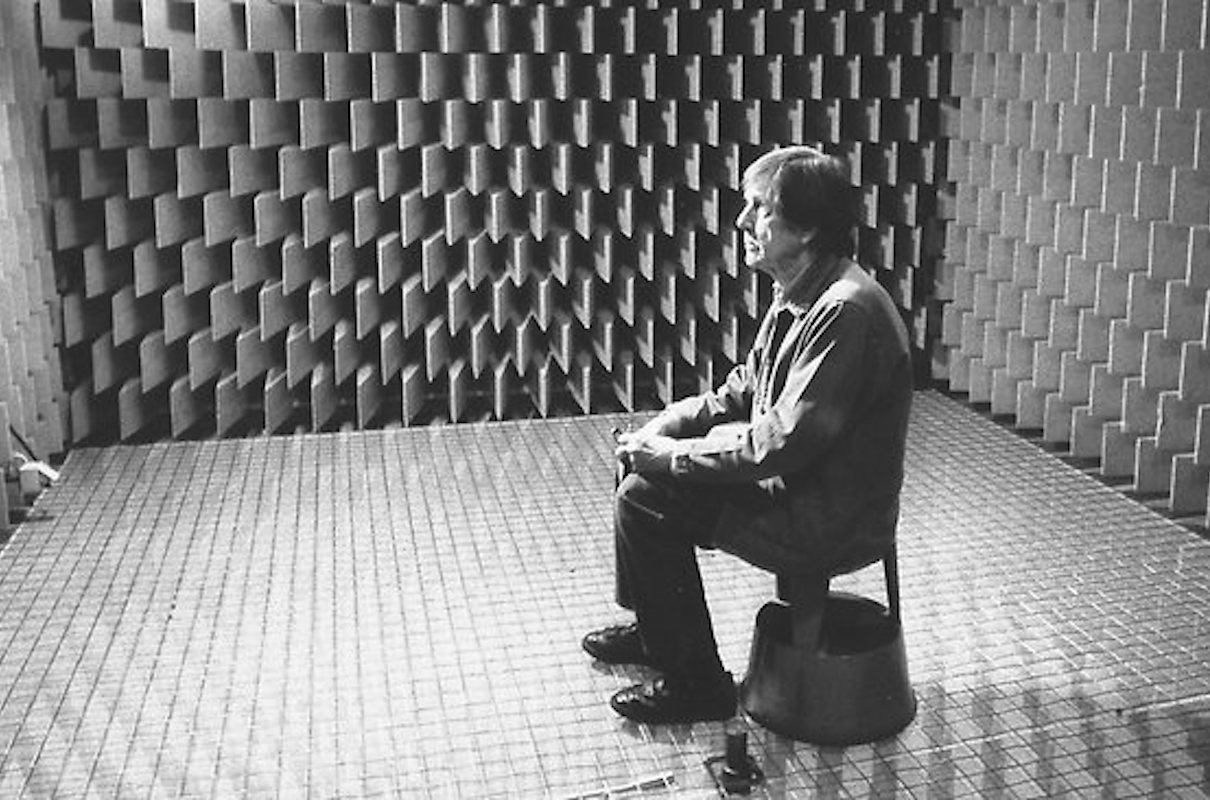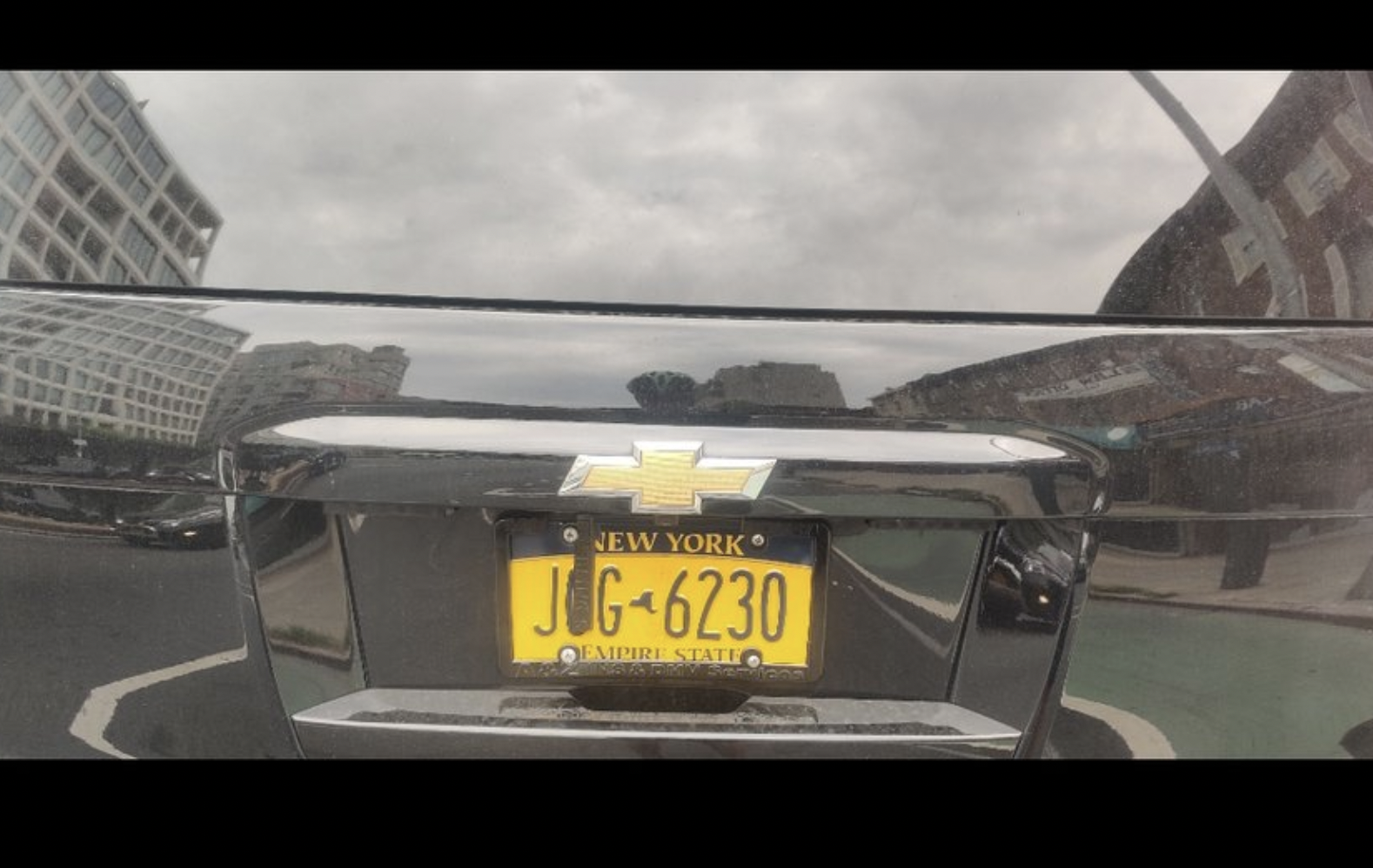NYPD Lawyer Eludes Discipline With ‘Just Following Orders’ Defense
A police watchdog said the lawyer abused his authority. Then his boss stepped in. Now no one is facing consequences.
3:20 PM EDT on May 17, 2022
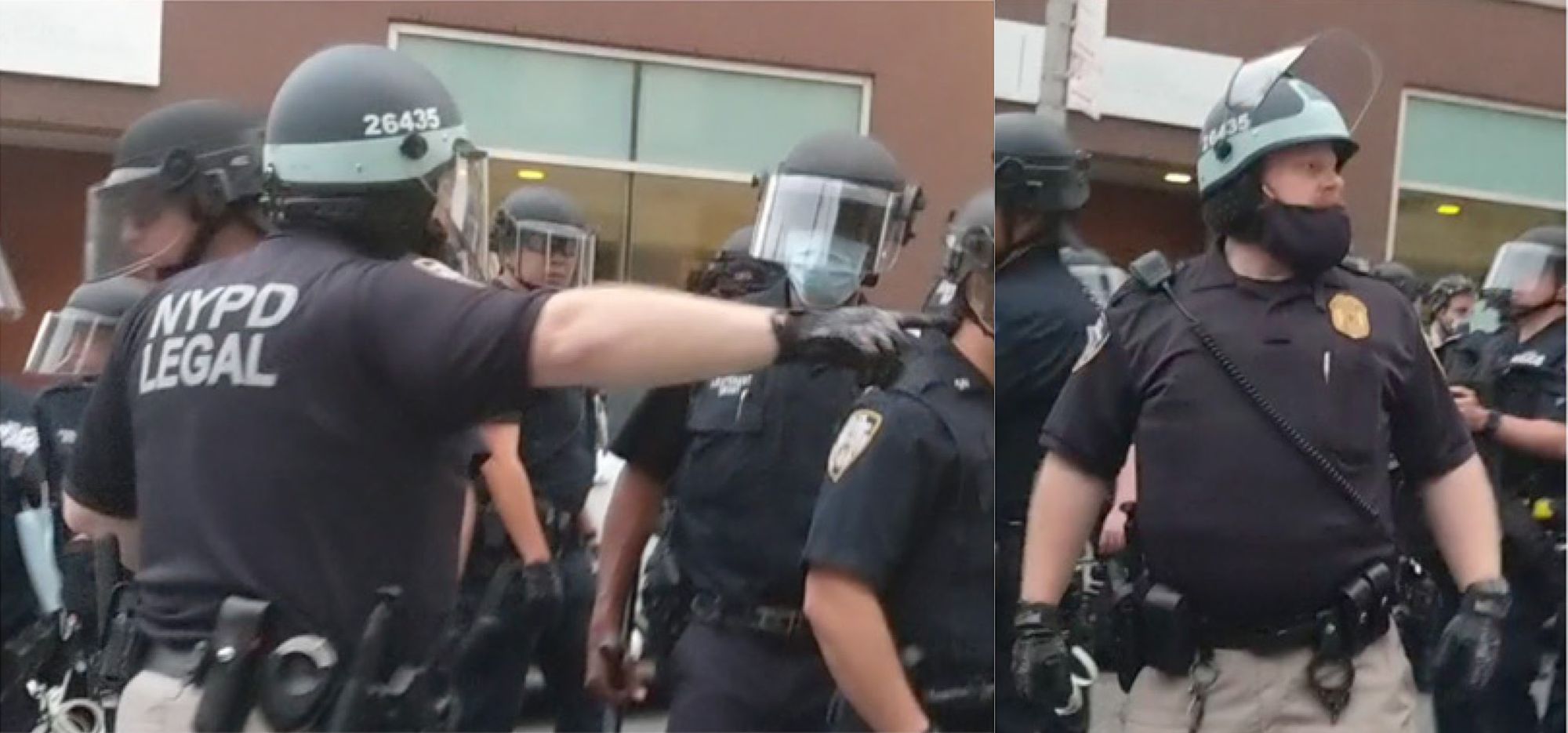
Sergeant Kenneth Rice of the NYPD Legal Affairs Bureau at the Mott Haven kettle (Hernandez et al. v. City of NY, et al. complaint)
In a summer full of ugly police violence against peaceful protesters, the NYPD's response to a march in Mott Haven on June 4, 2020, stood out as especially brutal.
After trapping protesters between walls of helmeted cops brandishing batons, the NYPD held them in place until the recently instituted 8 p.m. curfew. Then, police arrested the marchers en masse for violating the curfew, dousing them with pepper spray and beating them along the way. Notably, in addition to handcuffing around 100 protesters, the NYPD also arrested 12 impartial legal observers.
The NYPD lawyer responsible for okaying the arrest of those legal observers was identified by the City agency tasked with addressing police misconduct, and was about to face discipline last fall. But in an abrupt reversal in December, not reported until now, he was exonerated after making an unusual defense: He was just following orders.
The events of that night in the Bronx were singled out and condemned by the New York Attorney General, the Department of Investigation, and Human Rights Watch, the latter of which concluded the NYPD's conduct in Mott Haven, and its treatment of legal observers specifically, constituted "serious violations of international human rights law."
The green-hatted legal observers are part of a longstanding program by the National Lawyers Guild to monitor police conduct during protests, and on that day, the observers had a lot to monitor.
Or they would have, if police hadn't promptly arrested and handcuffed them, forcing them to sit in a position where they could not observe what police were doing, and, according to a federal lawsuit brought by the legal observers, accusing them of "illegal countersurveillance of the NYPD."
"Legal Observers can be arrested," Sergeant Kenneth Rice, a lawyer with the NYPD Legal Affairs Bureau, tells his fellow officers in a video captured during the protest.
Last October, the Civilian Complaint Review Board, the police oversight agency, recommended that Sergeant Rice be brought up on disciplinary charges for his role in the arrest of those legal observers. It was an extraordinary action—the first time the CCRB had recommended discipline for an NYPD lawyer based on their legal advice, and it was the first indication that any branch of City government was going to do anything about the NYPD's targeting of protest monitors for arrest.
NYPD leadership, on the other hand, regarded Mott Haven as a resounding success, with then-Commissioner Dermot Shea crowing the next day that the operation was "executed nearly flawlessly." In a letter to Human Rights Watch sent a few months after the protest, NYPD Deputy Commissioner for Legal Matters Ernest Hart appeared to argue that if police have declared a protest unlawful, nobody can lawfully observe how police respond to it: "Plainly," he wrote, "there cannot be a legal observer of a protest that itself is illegal."
This position seems to run counter to the NYPD's own patrol guide, which recognizes the right of people to observe, record, and document the police, and specifies that properly identified legal observers are entitled to courtesy and cooperation, including free access through police lines at demonstrations: "Observers shall be permitted to remain in any area, or observe any police activity, subject only to restrictions necessitated by personal safety factors, as determined by the incident commander."
But if the CCRB's decision in October 2021 to recommend disciplinary charges against Rice was a historic first in accountability for the conduct of NYPD lawyers, there were early indications that the NYPD was not going to let the precedent stand. When contacted that month for comment on the recommendation, the NYPD replied with a cryptic statement: "It is our understanding that the CCRB case is being reopened based on new evidence and we expect a different outcome." Hours later, the CCRB received a request from Rice to reopen Rice's case, on the basis of new evidence.
I wrote a story last fall about the CCRB's recommendation of charges, and didn't think about it much again. But in April of this year, the NYPD contacted me to alert me to the fact that Rice's case had been closed once again, this time exonerating him of all charges. Based on this development, the NYPD wanted me to run a correction on my story from October. This is not how corrections work, but, curious, I made a request under New York’s Freedom of Information law for a copy of the CCRB's closing report in Rice's case.
Sure enough, where once the CCRB had substantiated 12 counts of abusing authority against Rice, it now exonerates him on all counts. The report is redacted, and the CCRB did not immediately respond to requests for comment, but it appears that the "new evidence" Rice and the NYPD presented to justify reopening his case was a statement from a higher-up in the NYPD Legal Affairs Bureau attesting to the fact that Rice was just following orders.
That higher-up was Oleg Chernyavsky, an assistant deputy commissioner for legal matters at the NYPD. While not a uniformed officer, his title gives him a civilian rank equivalent to a uniformed two-star police chief. Chernyavsky told the CCRB that sometime prior to the Mott Haven kettle, he ran a meeting of the NYPD Legal Affairs Bureau where it was decided that "legal observers were not exempt from enforcement."
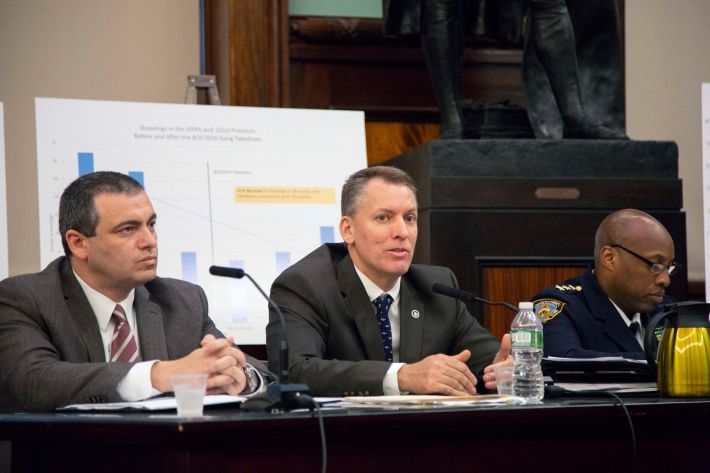
This decision was in direct opposition to one made by the mayor’s office. Jenny Sobelman, chief of staff for the Mayor's Office of State Legislative Affairs, affirmed on June 1, 2020, that legal observers were indeed essential workers, and thus exempt from curfew restrictions. Persephone Tan of the Mayor's Office of City Legislative Affairs further affirmed this, declaring legal observers "as essential as it gets."
Chernyavsky told the CCRB he didn't know about these decisions when he made the opposite decision, but that whatever the mayor's office was saying, "if he had been aware of the communication prior to the protest it would not have impacted his stance that legal observers were not exempt."
Whether Rice was in the room or not for the Legal Affairs Bureau meeting (Chernyavsky says he can't remember), he got the message, and relayed it to the cops in Mott Haven: "Legal Observers can be arrested."
By taking credit for the decision, Chernyavsky took the CCRB's heat off of Rice. But Chernyavsky isn't exactly taking responsibility for the decision, because he's beyond responsibility—as a high-ranking non-uniformed NYPD official, Chernyavsky is outside the authority of the CCRB. A police decision to arrest legal observers that was subject to oversight and discipline when a sergeant was thought responsible has become consequence-free, now that Rice's boss has said he made the call.
If Rice and the NYPD knew all along that the decision to arrest legal observers came from Chernyavsky, why didn't they say so when Rice was first under investigation, rather than after he had already given testimony and the CCRB had closed its investigation?
An NYPD spokesperson told Hell Gate that this last-minute intervention came about because the NYPD didn't realize at first that the CCRB intended to recommend charges against Rice based entirely on Rice's legal advice. "Abuse of Authority had never been applied to legal interpretations by Department lawyers before this incident," the spokesperson wrote. When the NYPD discovered that's what was happening, "it became apparent that we had additional information that may have been relevant." The spokesperson also defended the NYPD Legal Affairs Bureau's legal interpretation: "State and Local law and guidance supported the conclusion that legal observers were not 'essential workers' warranting an exemption from the curfew."
The latest resolution of Rice's case raises a number of questions. If "just following orders" is a sufficient reason to get Rice off the hook with the key police watchdog agency, what are the limits to that excuse in other cases where police abuse their authority?
And if the NYPD Legal Affairs Bureau is declaring that it makes its own judgments about who it can arrest, regardless of any policy or legal determination from City Hall, then who's ultimately in charge of policing policy in New York City?
Through a spokesperson, Mayor Eric Adams, who recently vowed to fire "abusive" cops, declined to comment specifically on this case, or why this episode should evade oversight. "The CCRB is an independent agency and Mayor Adams is confident that the agency can conduct their investigations in an impartial fashion," the spokeperson said. "The mayor will not compromise that independence by interfering in the agency's decisions."
Thanks for reading!
Give us your email address to keep reading two more articles for free
See all subscription optionsNick Pinto served two tours as staff writer at the Village Voice. His reporting has appeared in The New York Times Magazine, Gothamist, The New Republic, Rolling Stone, The Intercept, and elsewhere.
Stay in touch
Sign up for our free newsletter
More from Hell Gate
A Fired Google Engineer on Protesting the Company’s ‘Terrible Path in Their Pursuit of Money at the Expense of Human Life’
Zelda is part of a group of workers fired after participating in last week's No Tech for Apartheid demonstration.
Two West Village Newcomers Bring Fresh, Delicious Energy to the City’s Increasingly Predictable Burger Game
Burgerhead and Smacking Burger (located in a gas station) surprise and delight with their simple pleasures.
Eric Adams Still Wants to Cut Library Funding—But Don’t Worry, We’re Getting 1,200 More Cops
And more news for your Thursday.
This NY Times Columnist Should Probably Not Be Teaching John Cage to Columbia Students
John McWhorter can't be serious. He just can't be.
One Weird Trick for Getting Away With Obscuring Your License Plate
New York state lawmakers increased penalties for toll scofflaws, but also explicitly gave cops the power to cut them loose.
